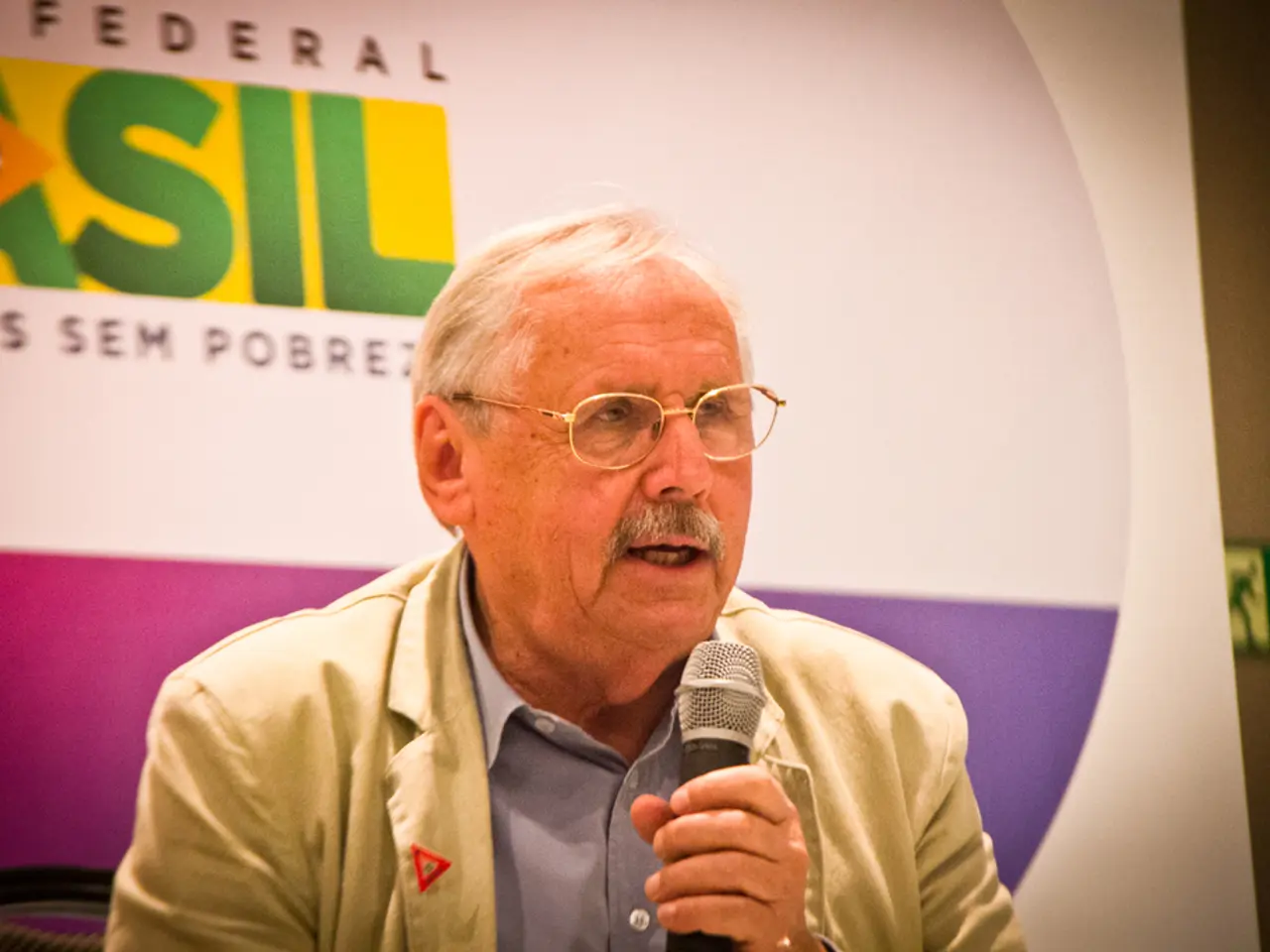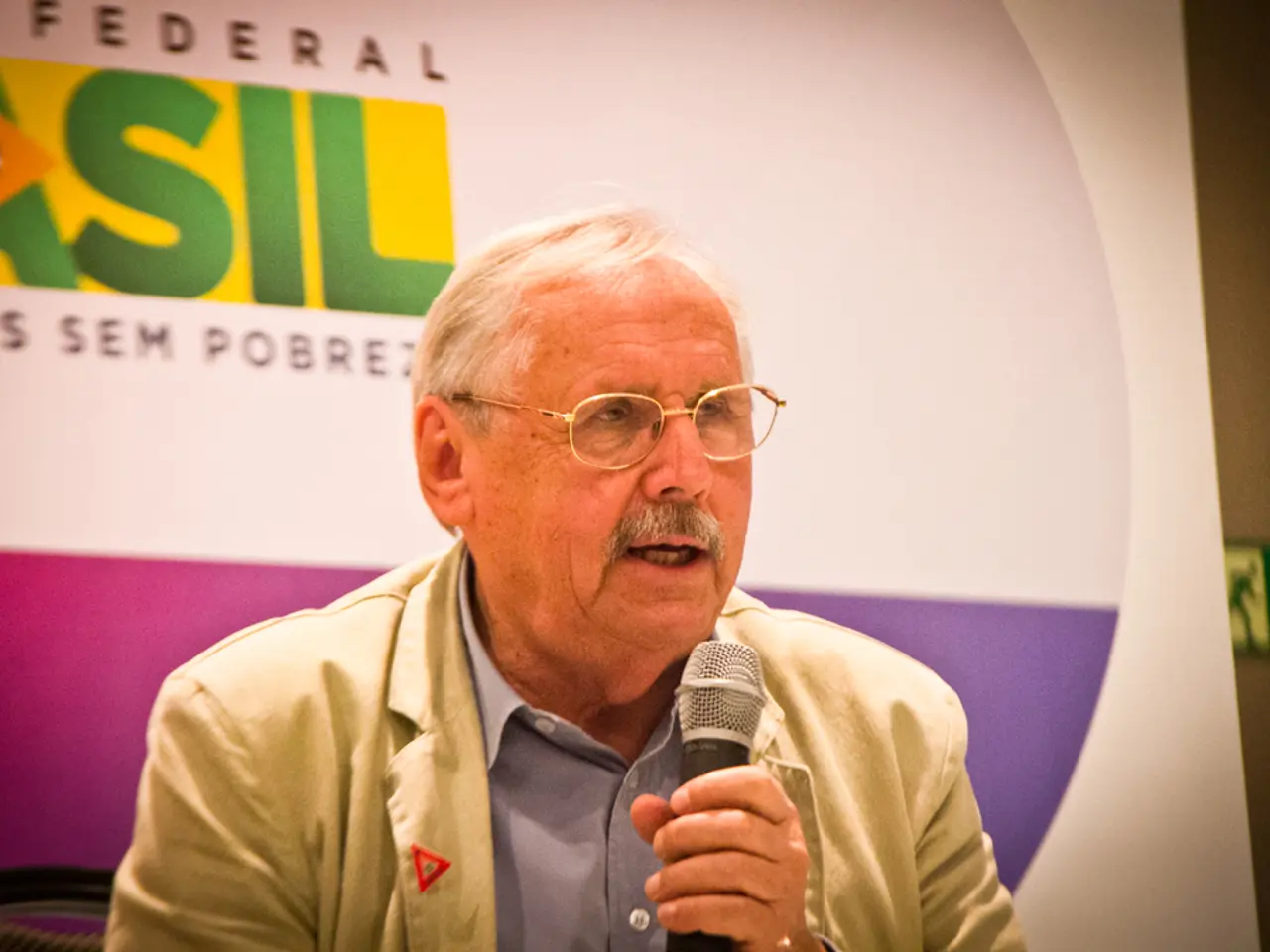Wim Wenders Discusses the Artistic Exploration of Disorientation through Film
Wim Wenders: A Journey Through Life, Art, and Cinema
Wim Wenders, the prolific German filmmaker and photographer, was born in Duesseldorf near the end of World War II, growing up in a city almost entirely reduced to rubble. This early exposure to the ravages of war may have laid the foundation for a career that would span continents and genres, focusing on themes of displacement, transformation, and human connection.
Wenders, often referring to himself as a traveler, emerged as a key figure in the New German Cinema movement in the 1970s. His love for photography, which began at a young age, led him to capture vast, desolate landscapes in his works, a style that would become synonymous with his filmmaking.
One of Wenders' most notable contributions to cinema is his Road Movie trilogy—Alice in the Cities (1974), The Wrong Move (1975), and Kings of the Road (1976)—which established his signature themes of travel, displacement, and self-discovery. These films, unfolding in chronological order like a travel itinerary, combine physical travel with introspective, emotional quests, exploring themes such as alienation, identity, memory, and the search for connection.
Wenders' characters, like the protagonists in Kings of the Road and Paris, Texas, navigate vast landscapes that mirror their internal struggles. These films emphasize the road not just as a setting, but as a metaphor for life's unpredictable journey and the transformation that happens through movement and encounters with others.
"Paris, Texas" (1984), a haunting exploration of loss and redemption set in the American Southwest, is a prime example of Wenders' work. The film, which earned him both the Palme d'Or at Cannes and the BAFTA for best director, is critically acclaimed for its deep emotional resonance and portrayal of isolation and reconciliation.
Wenders' work resonates with anyone who has ever felt out of place or longed for something more. His characters, like the angels he depicts as metaphors for the better person that we carry within us in films like "Wings of Desire" (1987), remind viewers that getting lost can lead to new ways of seeing - not just the world, but themselves.
In his latest film, "Perfect Days" (2023), Wenders continues to explore themes of journeying and human connection, with Koji Yakusho winning the best actor award at Cannes for his portrayal of a man navigating life in Tokyo.
Wenders' exhibition, "W.I.M. The Art Of Seeing," is running at the Bundeskunsthalle in Bonn, Germany, until January 11, 2026, offering visitors a chance to delve deeper into his stark images of abandoned spaces, overlooked corners, and long, silent roads.
For Wenders, music and film belong together, with music playing a leading role in his films. His belief that being lost allows for a deeper understanding of a city, and that his work resonates with those who have ever felt out of place, makes him a unique and compelling voice in contemporary cinema.
- The prolific filmmaker Wim Wenders, known for his explorations of displacement, transformation, and human connection, has his work featured in an exhibition titled "W.I.M. The Art Of Seeing," at the Bundeskunsthalle in Bonn, Germany.
- Wenders' contribution to media extends beyond cinema, as he delves into international news stories, often highlighting themes of travel and self-discovery, as seen in his Road Movie trilogy.
- Wenders' love for photography led him to capture vast, desolate landscapes not just in films but also in exhibitions, earning him recognition as a key figure in the European and international art scene.
- His perceptive portrayal of celebrities, such as character Travis Henderson (played by Harry Dean Stanton) in the movie "Paris, Texas," showcases the transformative power of cinema, resonating with audiences worldwide.
- Wenders' work in movies and TV, including the critically acclaimed "Perfect Days" (2023), deals with universal themes of journeying and human connection, which extends into the realm of contemporary entertainment culture.








